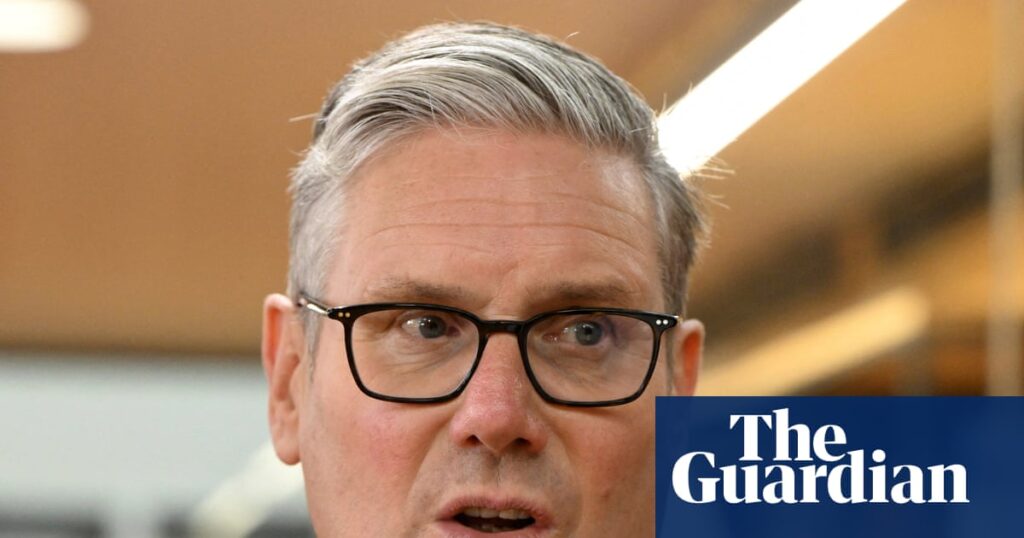Keir Starmer has said he is listening to hostages taken by Hamas but still intends to recognise a Palestinian state unless Israel commits to a ceasefire and two-state solution.
The prime minister said he had spoken to the freed British-Israeli Emily Damari, held hostage by Hamas for 471 days, after she accused him of “moral failure” over the move to recognise Palestine as a state in September at the United Nations.
He said the hostages must be released, but alongside that everything possible must be done to alleviate the humanitarian catastrophe in Gaza and bring about a ceasefire.
Speaking to ITV West Country while on a visit to Swindon on Thursday, the prime minister said: “I particularly listen to the hostages, Emily Damari, who I have spoken to, I’ve met her mother a number of times, and they’ve been through the most awful, awful experience for Emily and for her mother.
“And that’s why I’ve been absolutely clear and steadfast that we must have the remaining hostages released. That’s been our position throughout and I absolutely understand the unimaginable horror that Emily went through.
“Alongside that, we do need to do everything we can to alleviate the humanitarian catastrophe in Gaza, where we are seeing the children and babies starving for want of aid which could be delivered.
“That is why I’ve said unless things materially change on the ground, we’ll have to assess this in September, we will recognise Palestine before the United Nations general assembly in September.”
Damari has said Starmer is “not standing on the right side of history” and that she was “deeply saddened” by the decision.
The government has not been explicit about whether Starmer would require remaining hostages taken on 7 October to be released before he would be willing to agree Palestinian statehood. He has said he will assess “how far both Israel and Hamas have met the steps we set out” before taking a decision.
But Jonathan Reynolds, the business secretary, appeared to suggest that Hamas were not part of negotiations over recognition of Palestine because they are terrorists rather than the government.
Speaking to the BBC’s World at One, he said the UK would not get into a “to and fro” with Hamas over the recognition plans. Reynolds told reporters: “Our requests that all hostages must be released and that Hamas can play no future role in the governance of Gaza or a Palestinian state are longstanding.
“We don’t negotiate with terrorists. Hamas are terrorists and that’s why we don’t get into a to and fro with them as to what we want them to do. That’s absolute in terms of our request.”
Two government sources told the Guardian that its demands on Hamas to free the hostages and sign up to a ceasefire remain unchanged and unrelated to the recognition of Palestinian statehood.
The government also stressed on Thursday that its plans to recognise Palestine are compliant with international law, after a group of peers raised concerns that it did not meet the legal bar.
after newsletter promotion
Gareth Thomas, a business minister, told Times Radio: “In the end, recognition of another state is a political judgment and over 140 countries have already recognised Palestine, and we’re determined to do so in September if Israel does not end the violence in Gaza, agree to a ceasefire and agree to a lasting route towards a two-state solution, and to no annexation in the West Bank.”
On Thursday, however, 40 members of the House of Lords, including high-profile lawyers, wrote to Richard Hermer, the attorney general, challenging the prime minister’s announcement.
They said the move towards recognising Palestine may breach international law, questioning whether it met the conditions of having a defined territory, a permanent population, an effective government and the capacity to enter into relations with other states.
In their letter to Hermer, the peers said there was no certainty over the borders of Palestine and no single government, as Hamas and Fatah were enemies.
Among the peers to have signed the letter are David Pannick – who represented the previous government at the supreme court over its Rwanda scheme – as well as the KCs Guglielmo Verdirame and Edward Faulks.
In contrast, Philippe Sands KC, a professor of law at UCL, and a friend of Hermer and Starmer, said: “I have no doubt whatsoever that if it were asked, the international court of justice would reject the argument that it is somehow unlawful to recognise the existence of Palestinian statehood.
“Palestine meets all the legal criteria of statehood, all that remains is a political consideration, namely whether to recognise or not that those criteria are met. In its 2024 Advisory Opinion, at paragraph 283, the Court recognised ‘the right of the Palestinian people to self-determination, including its right to an independent and sovereign State’. The Court did not indicate that the ‘right to an independent and sovereign State’ was somehow conditional or something for the future. The Court’s language makes clear that that right exists now, and it exists because all the criteria for statehood are met.”


